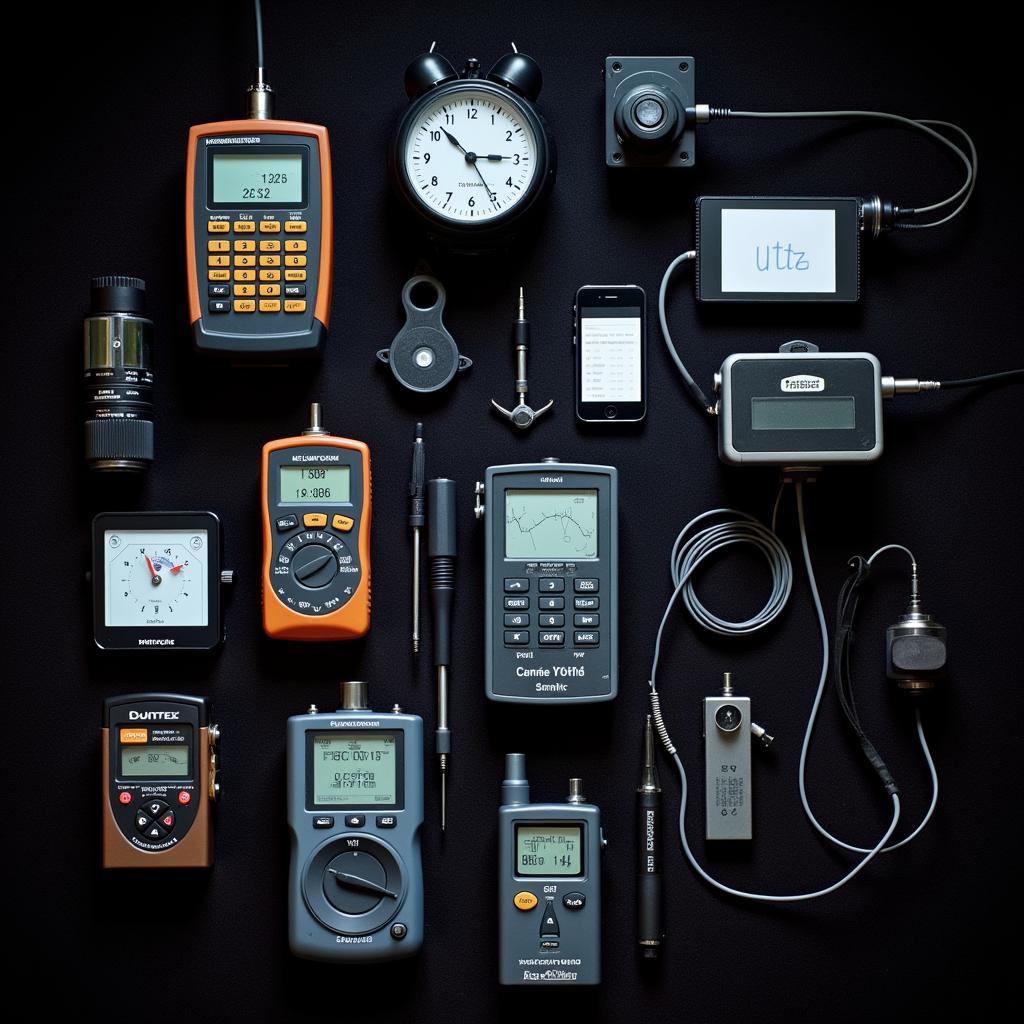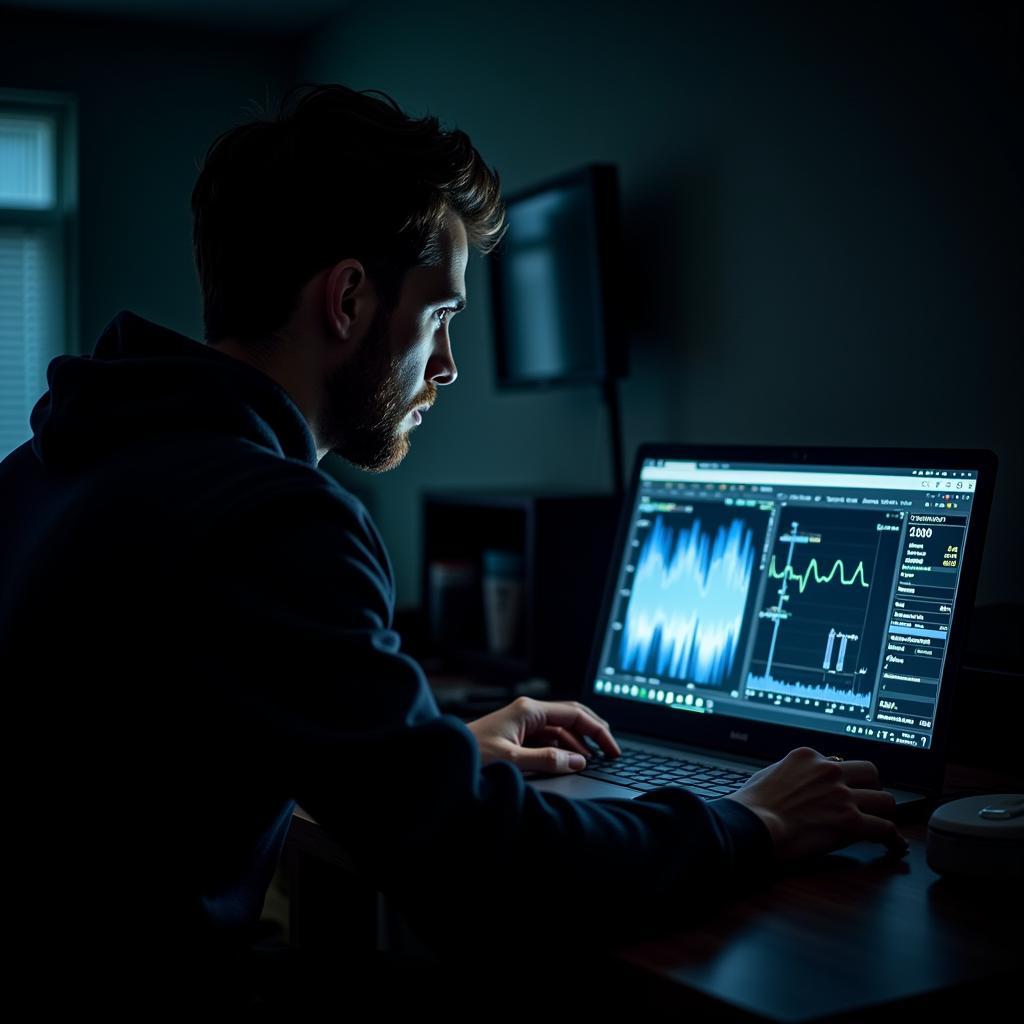The term “Process Research Definition” might seem like a mouthful at first, but it’s your gateway to understanding how we explore the unknown in paranormal investigation. It’s about meticulously documenting every step, every observation, and every analysis in our quest to comprehend the unexplainable.
Delving into the Heart of Process Research
Process research, in its simplest form, refers to the systematic investigation of how something happens. It’s about dissecting a phenomenon, not just to observe what’s happening, but to understand the intricate dance of factors that contribute to its occurrence.
Think of it like baking a cake. You don’t just shove all the ingredients in a pan and hope for the best (well, some of us do!). A recipe, the step-by-step guide, is akin to process research. It outlines each stage, ensuring consistency and allowing us to pinpoint which variables might have caused that sunken middle or crispy edge.
Why Process Research Matters in Paranormal Investigation
Now, you might be thinking, “That’s all well and good for cakes, but what about ghosts?” Well, the same principles apply. The paranormal field is rife with anecdotal evidence, subjective experiences, and a whole lot of “I felt something.” While these accounts are valuable starting points, they lack the rigorous, objective framework that process research provides.
By applying process research to paranormal phenomena, we aim to move beyond speculation and towards potential explanations. This involves:
- Standardized Procedures: Just like our cake recipe, establishing a consistent approach to investigations allows for replication and comparison of results.
- Detailed Documentation: Every observation, environmental reading, and piece of data collected contributes to building a comprehensive picture of the event.
- Objective Analysis: By removing personal bias and relying on quantifiable data, we can begin to identify patterns and potential correlations.
 Equipment Used in Paranormal Research
Equipment Used in Paranormal Research
Key Components of Process Research in Paranormal Investigation
To further grasp the concept, let’s break down some crucial aspects:
1. Clearly Defined Research Question: What exactly are we trying to investigate? Is it the alleged haunting of a location, the potential for communication with spirits, or the effect of electromagnetic fields on paranormal activity? A focused research question guides the entire process.
2. Operationalization: This involves defining our variables in a measurable way. For instance, how do we define and measure “haunting”? Is it through EMF fluctuations, temperature drops, or witness accounts?
3. Data Collection Methods: From EMF meters and EVP recorders to thermal cameras and even good old-fashioned observation logs, the tools we use dictate the type and quality of data we gather.
4. Data Analysis Techniques: Once we have data, how do we make sense of it? This can range from statistical analysis of environmental readings to qualitative analysis of witness testimonies.
 Data Analysis in Paranormal Research
Data Analysis in Paranormal Research
Process Research: A Pathway to Understanding
It’s important to remember that process research in the paranormal field won’t necessarily give us definitive answers. What it can do, however, is provide a structured and objective framework for exploration. It’s about building a body of evidence that can be scrutinized, replicated, and hopefully, one day, lead us closer to understanding the mysteries that lie beyond our current perception.
Frequently Asked Questions about Process Research in Paranormal Investigation
1. What is the main goal of process research in paranormal investigation?
The main goal is to bring a more systematic and objective approach to studying paranormal phenomena. It aims to move beyond subjective experiences and anecdotal evidence by establishing standardized procedures, collecting detailed data, and analyzing it rigorously.
2. How does process research differ from other types of research in this field?
Unlike purely experimental or theoretical approaches, process research focuses on understanding the “how” of paranormal events. It delves into the mechanisms and processes involved, attempting to identify patterns and potential explanations.
3. Can process research definitively prove or disprove the existence of ghosts?
While process research might not offer definitive proof, it provides a framework for gathering and analyzing evidence in a more reliable and objective manner. This can potentially lead to more concrete conclusions in the future.
4. What are some examples of process research methods used in paranormal investigation?
These methods include using scientific equipment like EMF meters and EVP recorders, implementing standardized investigation protocols, maintaining detailed observation logs, and employing qualitative analysis techniques for witness testimonies.
5. What are the limitations of process research in paranormal investigation?
Some limitations include the difficulty in replicating paranormal events, the challenge of controlling for all variables in often-chaotic environments, and the subjective nature of interpreting some data.
6. How can I learn more about process research and its applications in paranormal investigation?
For a deeper understanding of the research process definition, explore our articles on specific methodologies like research process definition, definition of conceptual research, and us federal research misconduct policy.
7. How can I apply process research principles to my own paranormal investigations?
Start by defining clear research questions, establishing consistent procedures, documenting your findings meticulously, and exploring objective data analysis techniques. Resources on definition of operationalization in research and what is the conceptual framework in research can be beneficial.
Need Help with Your Paranormal Research?
Contact us! We’re here to support your journey into the unknown.
Call us: 0904826292
Email us: research@gmail.com
Visit us: No. 31, Alley 142/7, P. Phú Viên, Bồ Đề, Long Biên, Hà Nội, Việt Nam
Our dedicated team is available 24/7 to answer your questions and provide guidance.